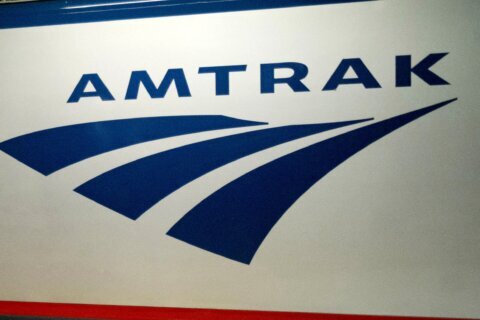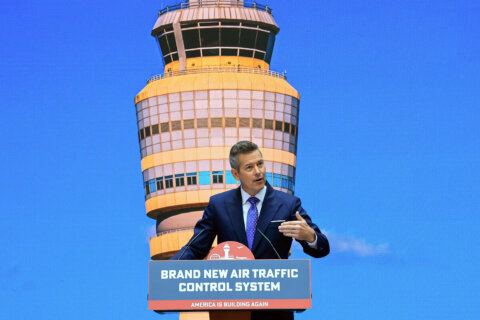With huge demands for transportation improvements across Virginia, the state could raise gas taxes next year, Transportation Secretary Shannon Valentine suggested Monday.
Gov. Ralph Northam’s administration plans to include transportation funding initiatives in his agenda in the General Assembly session starting in January, including some type of new revenues, and restoring funding shifted to Metro from local governments in Northern Virginia, Valentine said.
“Yes, and yes,” Valentine told State Sen. Adam Ebbin on Monday at an event in Springfield for Northern Virginia local and state elected officials.
Without a change to increase the gas tax or other funding sources, and to lock in future increases with a link to general inflation or construction cost inflation, the state projects a drop in funding available for road construction and other projects.
“Virginia’s transportation [funding] system is simply not sustainable the way we are going,” Valentine said.
The decline in projected revenue is based on increases in driving, but also in fuel efficiency.
That means the state will likely need a decade-long funding bridge from something like a gas tax increase in order to get to a longer-term future that might rely on tolls or other fees specifically tied to the number of miles someone drives or the types of roads they use, Valentine said.
Final recommendations from Valentine’s office to the governor and general assembly are expected to be finalized following an internal meeting later this week.
“We have spent a year actually looking at a … comprehensive list of options that could be available to us, and what we really want to do is focus on what would be the most effective and the most sustainable going forward,” Valentine said.
The gas tax in Northern Virginia is currently around 22 cents, the 12th lowest of any state.
“And in this bridge period that we’re in, most states are coming back to raising the gas tax an amount that could carry us over this bridge, and they are indexing it to something that’s growing,” Valentine said.
Some in the working group considering the recommendations for the governor would prefer to tie the gas tax to national highway construction costs, as Alabama did recently.
The increased funding from any new taxes or other financial shifts are expected to be part of a broader transportation funding proposal from the Northam administration that would also address a top priority for all local governments in Northern Virginia: restoring the approximately $100 million the state took from the region in 2018 to pay its share of Metro costs.
Local governments have blamed those cuts from the Northern Virginia Transportation Authority for the cancellation or slowing of a number of major construction projects.
While there were efforts to restore the funding before, the proposal is expected to have better odds in this winter’s General Assembly session, since Democrats have taken control of both chambers and Northern Virginia will have increased sway.
Any transportation funding plan could also include increased support for major projects beyond road funding, including an additional state commitment to the Long Bridge rail expansion between Arlington and D.C. allowing for a dramatic increase in the number of Amtrak and VRE trains.
“I think there’s going to be some challenging discussions and decisions and perhaps how we look at our multimodal platform,” Valentine said.
The needs across rail, other transit, roads, the port and even the spaceport at Wallops Island mean there may also be a need to diversify funding sources so a single variable does not decimate a particular type of transportation, Valentine said.
VMT fee could be the long-term future.
While more widespread adoption of charges to all drivers based on the amount of driving they do is likely at least a decade away, some states are already moving toward the vehicle miles traveled or mileage-based user fees.
“We really want to do this in a very deliberate way,” Valentine said.
Virginia is part of the 95 Corridor Coalition that is examining how such a system could work on the east coast.
“The consensus seems to be that over the next 10-15 years, there will most likely be a different way of raising major transportation revenues, whether it’s from a mileage based user fee, vehicle miles traveled, there will be some different form. That is a longer term perspective,” Valentine said.







